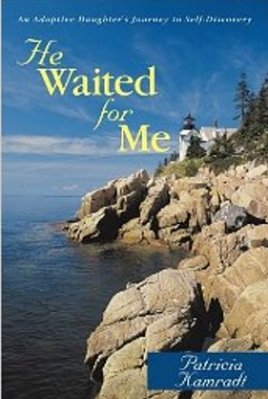April 2012 The Beacon | |
Welcome to the April issue of The Beacon. American Adoption Congress proudly announces our new campaign:
(Be sure to read the article- PR Campaign, below.) With warm regards, Susan Bennett & The Beacon Team If you are an AAC member, watch for the Summer issue of The Decree arriving in your mailbox this June. If you're not a member yet, please consider joining us. If you have a story idea, we'd love to hear from you, or if you have a comment or question, contact us at AACBeacon@gmail.com. PR Campaign
Wendy Rowney Adoption: No Secrets. No Fear. This campaign is about normalizing the reunion and reconnection process. It is about access and adoptees’ right to know who they are. It is about the connection that birth parents feel with their children and their desire to know them as adults. It is about the benefits of open adoption and openness at every stage of the adoption journey. Watch for our new awareness-raising campaign on radio, in the newspaper, and on the Internet.
It's about adoption and why secrets and fear have no place in it. Visit Cafe Press and check out our "No Secrets. No Fear." items, and help us promote the campaign by sharing it on Facebook. Spotlight Interview: Alison Larkin
Mirah Riben Take a few moments and enjoy a great article by Mirah Riben. Her interview with the engaging Alison Larkin is a must-read! Alison Larkin: The English American Speaks Her Truth About Adoption Click to read. Alison Larkin, adoptee, author and one-woman show writer-performer, discusses her adoption, international adoption practices, and her reunion and relationship with her mother and father. AAC Adoption News and Views
Pam Kroskie Tune in to our special show - April 6 and learn about AAC's new campaign, Adoption: No Secrets. No Fear. with President, Donnie Davis. AAC News & Views is going to Denver! Watch for more information... If you missed any of our shows, you can listen by going to our link on Blog Talk Radio. Ann Fessler discussed her new film, A Girl Like Her, during her visit on March 22. Click here if you didn't get a chance to listen. We love feedback; email me at pkroskieAAC@gmail.comMile High Expectations
It's not too late for you to make plans to join us in Denver, April 26 - 29, for our 33rd Annual International Conference. Mile High Expectations- Adoption in 2012 is shaping up to be an incredible event. Be sure to visit our website and take a look at what we have planned. We have one-of-a-kind workshops, new films, great keynotes, and a unique comedy event. Did you know that Ann Fessler will be showing her new Documentary, A Girl Like Her? If you've loved her book, this film is a must-see!
We look forward to seeing you later this month in the mile-high city for this exciting conference! Visit our website for more details. Ways to Stay in Touch
We have MANY new items on Cafe Press. (Watch for sales posted regularly on our Facebook page.)
Join us on social media pages like Facebook and Twitter.Ways to support AAC~ Please bookmark this link: | A Gift to Myself
Macy Melendy 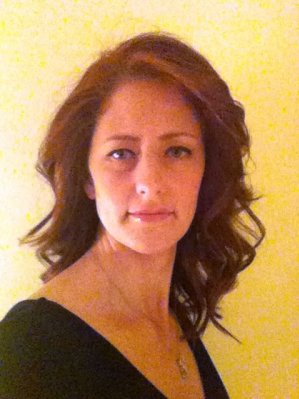 In 2002, after a rough divorce and a move to a new city for a new job, I decided it was finally time to give myself a long-awaited gift for my birthday. The AAC annual conference was in Atlanta that year and my birthday would fall on the last day. I couldn’t think of a better way to honor that day. For years I struggled to celebrate my birthday with others. No one seemed to understand that while it was a happy day, it was also a difficult one -- a reminder that I had no idea who I was or where I came from. At the conference, I could be around people who just understood without a whole lot of explanations. I wouldn't have to qualify my desire to know with statements that I did indeed grow up in a happy adoptive home or explain that wanting to know my heritage in no way took away from what my adoptive family had given me. In 2002, after a rough divorce and a move to a new city for a new job, I decided it was finally time to give myself a long-awaited gift for my birthday. The AAC annual conference was in Atlanta that year and my birthday would fall on the last day. I couldn’t think of a better way to honor that day. For years I struggled to celebrate my birthday with others. No one seemed to understand that while it was a happy day, it was also a difficult one -- a reminder that I had no idea who I was or where I came from. At the conference, I could be around people who just understood without a whole lot of explanations. I wouldn't have to qualify my desire to know with statements that I did indeed grow up in a happy adoptive home or explain that wanting to know my heritage in no way took away from what my adoptive family had given me.
As an adoptee, I grew up not having any idea of my heritage or family of origin. In 1995, I learned the truth. My parents were not two Columbia University college students with European backgrounds who “got in trouble” as the agency told my parents; rather they were a newly married couple from Mexico giving up a baby on their honeymoon. This news shocked me and shook me to my core. My hands trembled as I read the non-identifying information letter. Unable to process and digest these facts, I filed the information away. Locked it deep inside me. Those around me seemed to say, “Well … we can now finally get past this and will you please move on with your life?” Oh, we can get past this? This sentiment from my loved ones upset me more than the information itself. I felt even more alone. When my next birthday came around, my 26th, and I could not “snap out of it” like people wanted, I struggled to explain my feelings. How could I help people understand that getting this information meant finding more questions, not answers? I knew this was just the beginning of my journey and I needed to find support. Seven years later, I was on my own and finally feeling strong. I decided to spend my birthday at the AAC conference in Atlanta. I had been an AAC member for those seven years, but could never find the time or money to go to a conference. This year was different. I was living far from my ex-husband and adoptive family and felt a bit more freedom to do something for myself. Maybe it is selfish to indulge in a four-day conference all about issues surrounding adoption, yet, what others may call selfish I call healing. I knew that some people from my former adoption support group in Morristown, New Jersey, were going, but otherwise I would be alone. I was excited and yet quite scared. What if it was a terrible conference and I was stuck there without a support system? What if nobody there understands and nobody is like me? I knew I had to push past my fears and do this for me. It was a new era and I needed to usher it in with people who could relate. All my fears of the conference faded the moment I walked in to the hotel. Friendly face after friendly face welcomed me. The few people I did recognize introduced me to other wonderful people and so began the best gift I had ever given myself. Every workshop presenter seemed to be speaking directly to me. How did they all know about those feelings never voiced or even admitted to myself? I found out that there are other “good adoptees” out there so scared to hurt anyone around them that they too get stuck in their lives pleasing everyone and neglecting themselves. I met beautiful mothers who lost their children to adoption. Their pain was a salve to my hurt, for it gave me hope that my mother was out there wishing to meet me. It gave me comfort to imagine each of them as my mother. One father told me, “Macy, when you find your birthfather, I hope it’s me.” Silly, but yet that sweetness has never left me all these years later. read more... Legislation Update
Oklahoma appears to be the state with the most hope of getting its original birth certificate "OBC" access bill heard. It has to pass the Senate Judiciary Committee and the Senate Budget and Appropriations Committee to be heard on the Senate floor. AAC State Representative- Samantha Franklin says, "We are working to encourage legislators in these committees to hear the bill." Please visit Oklahoma Open on the group's Facebook page.
Also in the mix is Connecticut; their access bill is in the Judiciary Committee and still alive. Access Connecticut is hopeful for a vote on SB 296 later this week. Keep up with CT here. Unfortunately, the access bill in Georgia did not proceed. GEAR is hopeful for next session. Australia Leads the Way
David Phelps Australia Leads the Way in Adoption Reform
All of this stands in sharp contrast to the adoption scene in the United States. Here, first mothers and adoptees struggle state by state merely to open sealed adoption records, something that occurred in the UK some thirty years ago. In the vast majority of states, records remain sealed. Here a vast, lucrative adoption industry works against adoptee rights at every turn. Here, the long outdated mythology that adoption is solely "good" and "benefits everyone involved" still has a tremendous grip on the public consciousness. Here, the idea that adoption causes lifelong trauma for both the adoptee and the first mother is either largely unknown or seen as somehow subversive. Here in the U.S. even today, it is possible to enter into a coerced, closed adoption and thousands are needlessly adopted each year. It is even possible to witness on national television the revolting, barbaric spectacle of an adoptive parent witnessing the delivery and cutting the umbilical chord of the newborn she has managed to adopt. It truly is a national disgrace! David is an adoptee, husband, father, minister, and member of ABSN (Adoptee Birth Parent Support Network) in the DC area. He was adopted in 1960 in Rochester, NY. Until 2005, David says that he was in the “Great Sleep,” as coined by BJ Lifton. In his initial search for birth family, he was saddened to find his first parents' graves, but he also found siblings with whom he now has a relationship. David is an adoptee rights advocate and involved with Unsealed Initiative in NY. Book Club CornerOur April Book Club Corner selection is: "He Waited for Me" by Patricia Kamradt
Click here to order this book from Amazon. If you are interested in having your book highlighted in the AAC Book Club Corner, or on our website, write to us at AACBeacon@gmail.com. View AAC's entire Recommended Reading book list. |
| Newsletter - April 2012 | |
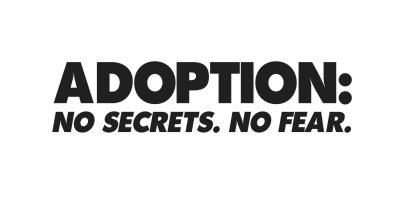
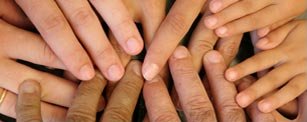


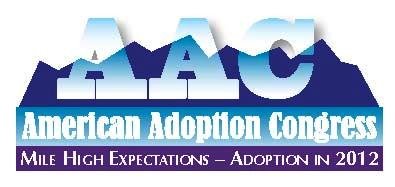
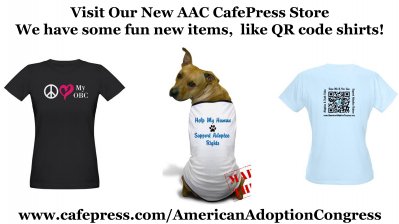
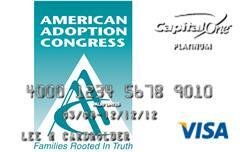

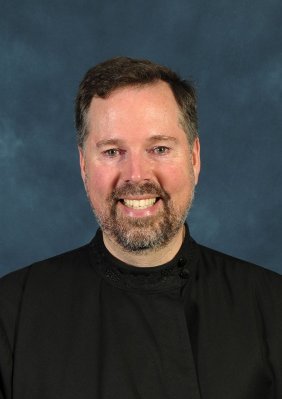 Some remarkable things have been happening of late in the world of Australian adoption. Australian adoptees, first mothers and even Australian governments have been confronting head on the terrible aftermath of the Baby Scoop Era (BSE). With this knowledge in hand, governments and religious organizations are apologizing to those affected by the inhumane policies of the past. Reforms are being made to Australian adoption laws so that BSE type coerced and forced adoptions are never repeated. The lifelong, traumatic effect of these adoptions on both adoptees and first mothers is being acknowledged publically. The Australian public at large is being educated about a barbaric episode in the country’s social history, which is being described by many as the “other stolen generation.” Because of the courage of first mothers, adoptees and legislators to discuss candidly and truthfully the wrongs of the past, the nation has a real possibility of reconciliation and healing. For a full report and discussion of forced adoptions in Australia by the Australian Senate please follow this
Some remarkable things have been happening of late in the world of Australian adoption. Australian adoptees, first mothers and even Australian governments have been confronting head on the terrible aftermath of the Baby Scoop Era (BSE). With this knowledge in hand, governments and religious organizations are apologizing to those affected by the inhumane policies of the past. Reforms are being made to Australian adoption laws so that BSE type coerced and forced adoptions are never repeated. The lifelong, traumatic effect of these adoptions on both adoptees and first mothers is being acknowledged publically. The Australian public at large is being educated about a barbaric episode in the country’s social history, which is being described by many as the “other stolen generation.” Because of the courage of first mothers, adoptees and legislators to discuss candidly and truthfully the wrongs of the past, the nation has a real possibility of reconciliation and healing. For a full report and discussion of forced adoptions in Australia by the Australian Senate please follow this 